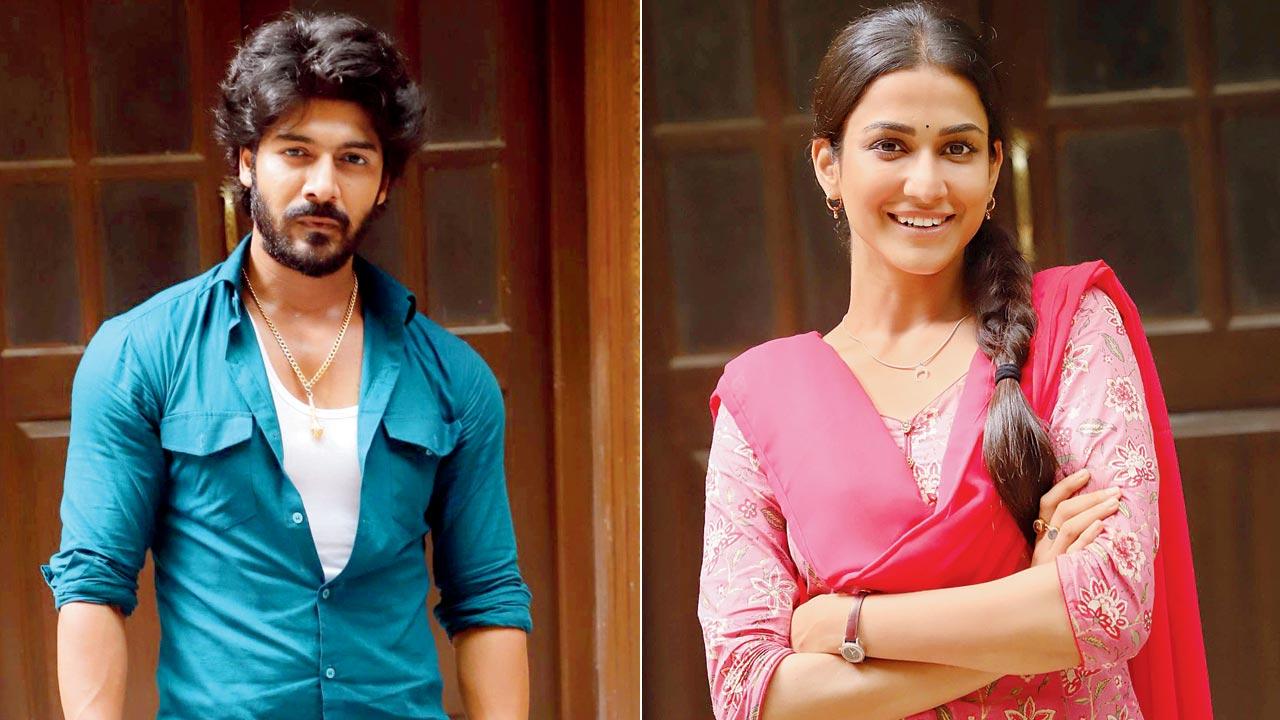
It’s not easy to be selective of every role — or the weather that comes with it — but Amandeep Sidhu believes she has finally reached a point in her career where she can take on parts that speak to her, stand apart, and create an impact. So, when Ganga Mai Ki Betiyan came her way, she admits she was sceptical. But after producer Sargun Mehta urged her to attempt a mock shoot, she took the plunge — and the rest, as they say, is history. In conversation with mid-day, Sidhu opens up about the grind of shooting in extreme weather, why her character feels like therapy, and why she believes “being a woman is my superpower.”
Excerpts from the interview.
Are you accustomed to the heat in Chandigarh after shooting there for so many months?
Dukhatee rag pe haath mat rakho. We’ve endured so much heat that I’ve become four shades darker. I feel I look darker despite the make-up I apply. However, it’s all part of the experience. This isn’t even the worst of it. In June and July, the heat reaches another extreme. But the beauty of Chandigarh is that when it’s cold, it’s equally extreme and beautiful. Most of our shoot is outdoors, so we have no choice but to bear it.
Does the struggle seem worth it?
When I did my first show with Dreamiyata, called Badall Pe Paon Hai about a year ago, it was tough. During that show, I would often go home and cry. I’d tell my mum that I couldn’t do it. I’d fall sick every other day because the body isn’t used to the heat. Since most of our shoot happens outdoors during the day, the lighting is perfect, and the scenes look great. This is the time to struggle, while your body can handle harsh weather, so why not?
Did you have reservations about being paired opposite Sheizaan Khan again after Tu Aashiqui Haii?
I did wonder if the audience would accept us because his character was negative in the previous show where he actually hits me. But in this show, I get to take revenge [laughs]. I was surprised to see people loving the jodi right since the trailer dropped.
Did the show give you a Pushpa vibe?
That’s exactly how the script came. That was the vibe — they wanted South-style fight sequences. We wanted the show to appeal to everyone, so it was important to add that blend.
Does it feel liberating to play a character who can be aggressive and not just a damsel in distress?
I actually enjoy it. Just the other day, we shot a sequence where I was chasing goons and fighting without restrictions. It felt natural, maybe because I’ve been suppressing that part of me that wants to lash out. It feels healing, in a way. I can vent all my anger while doing action scenes in this show. My creatives even praised me for emoting the anger scenes beautifully. It’s a nice way to vent [laughs].
We heard you were the last to be cast. Why?
I don’t know why I wasn’t keen on doing this show initially. It was Sargun who convinced me to give the character a shot. So, I did a mock shoot, and the channel loved it. They wanted someone with an innocent face who could also burn down cities when angry.
Are you happy with your journey and career trajectory in television?
I’m happy with the work I’m doing because I get to play different characters. In Badall Pe Paon Hai, I played a girl into stock markets; in Ganga Mai Ki Betiyan, I play someone unafraid of taking charge. In fact, when I tried being coy opposite Sheezan, my makers corrected me, saying my character doesn’t fit that mould. You might find other characters in the show typical, but not mine. I’ll show you my Dabangg side in this one.
Why do you think Indian daily soaps, despite being female-centric, still depend on male protagonists or love stories?
I think the channel has taken a good step by highlighting a family issue rather than just a love story. In our show, the father abandons his family after discovering his third child is also a girl. The way society reacts to a girl’s birth is still a harsh reality in some parts of India. This show will prove that women can change the world. It’s similar to how I speak to my mother — I always told her I’d make her proud. Back then, she’d laugh it off, but now she flaunts my achievements proudly. I think being a woman is my superpower, and that’s what we’re showing here.
Is doing action tough?
I’ve reached a stage where I’m doing the work I love. After a gruelling day, when I go to bed, I feel proud of the scenes I’ve shot. That makes the pain worth it. The other day, I injured my leg but had a running scene — I ran, finished the shot, and it felt good. I’m grateful to be doing what I love; exhausting yourself for your passion is a blessing.







